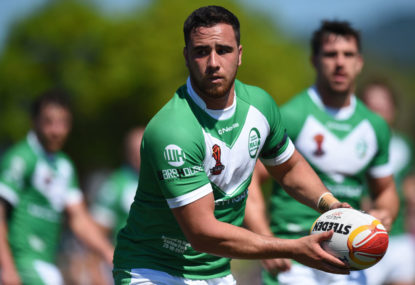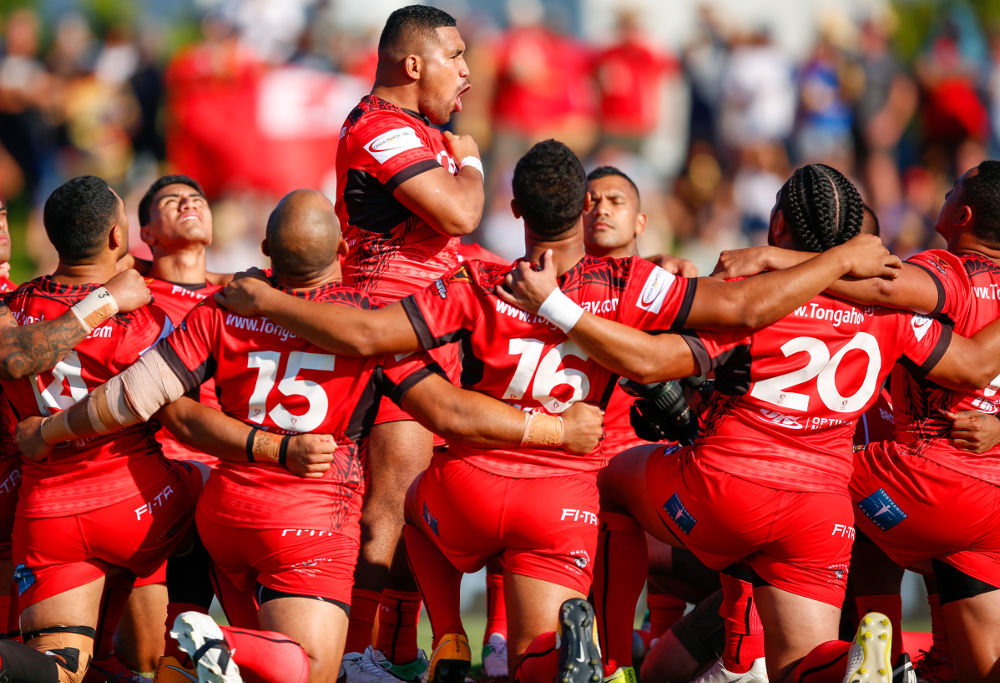NRL Round 7 Team Lists Late Mail: Dolphins get exemption plus Wayne now in doubt, star Rooster out
The Dolphins have again been given permission by the NRL to go outside their top 30 in order to field a team, as coach…

The Rugby League World Cup has been an enormous success, showing that there is a genuine appetite for international rugby league.
Now with the World Cup behind us, the Rugby League International Federation (RLIF) must start building an international calendar which helps to showcase international rugby league.
The RLIF should promote regional competition and give tier two and developing nations the opportunity to play against the big three while also providing regular test matches.
The first component of a new calendar for international rugby league is the midyear test period. Mainly concentrated in the Northern Hemisphere, it will build new rivalries and also play matches around big holidays in key growth markets.
The midyear test period kicks off in March with a St Patrick’s Day test to be played between the United States and Ireland. Rotating hosting rights on an annual basis, matches could be taken to US cities such as Boston and Philadelphia as well as the Irish capital of Dublin.
With a large American expat community and both nations on the brink of competing with the top tier-two nations, it will provide the Hawks and Wolfhounds not only with necessary experience but help to grow the game in the respective countries.

(NRLPhotos/Scott Davis)
The midyear test period recommences on the last weekend of May running until July for six and a half weeks. European Championships will be held as well as an Americas Cup competition and three-week Mediterranean Cup. In addition a playoff between the sixth and seventh European nations will determine who joins the European Cup while Canada and the United States will play on Canada Day and the Fourth of July as part of the Americas Cup.
The breakdown of the respective midyear tournaments is as follows:
Americas Cup: Canada, Jamaica, United States.
European B Championship: Belgium, Malta, Russia, Serbia, Spain, Ukraine.
European C Championship: Czech Republic, Germany, Greece, Hungary, Netherlands, Norway.
European D Championship: Denmark, Latvia, Poland, Sweden, Turkey.
Mediterranean Cup: France, Italy, Lebanon.
The NRL must also break away for Pacific tests during the State of Origin standalone weekend, allowing for matches between New Zealand and England, Samoa and Tonga, and Papua New Guinea and Fiji. Should the Rugby Football League be concerned with travel for England, the Cook Islands can join the other five Pacific nations.

(Photo: Mark Nolan/Getty Images)
The pride and joy of the international rugby league calendar will be the end of year season running from October to November.
It will kick off annually with test series featuring Australia and New Zealand, Samoa and Tonga, and Papua New Guinea and Fiji on a home-and-away basis.
Tours will take place biennially during even years, with Australia and New Zealand either playing England or the North American nations.
This means that in a given year Australia could tour England for The Ashes while New Zealand play Canada and the United States in two tests each. The allocation of tours would be swapped every two years with hosting for series featuring England rotating.
While these tours are being held, a series of regional tournaments will also be contested. The Pacific Cup will feature the Cook Islands, Fiji, Papua New Guinea, Samoa and Tonga. France, Ireland, Italy, Scotland and Wales will all compete for the European Cup.

(NRLPhotos/Dave Acree)
In addition to this, the Asian Cup (Hong Kong, Japan, Philippines, Thailand), Balkans Cup (Bulgaria, Greece, Serbia, Turkey) and Nordic Cup (Denmark, Norway, Sweden) will all be held. Meanwhile, a Pacific Shield tournament between Lebanon, Niue, Solomon Islands, South Africa and Vanuatu will run over five weeks.
In the off year the big three nations will square off against tier-two nations within their region. Australia and New Zealand will contest the Pacific Challenge against Fiji, Papua New Guinea, Samoa and Tonga, playing each one of the nations. England will then join the European Cup.
The international period will culminate in the Festival of World Cups every four years, headlined by the 16-team Rugby League World Cup as well as the Women’s World Cup and Emerging Nations World Championship, both of which will feature 12 nations.
No longer should countries like Tonga play one test match every non-World Cup year. Australia shouldn’t be taking years off anymore. Change is afoot.
The RLIF need to adopt a new international calendar and encourage global expansion off the back of World Cup success. By providing all member nations with regular test matches, it will only help to boost the legitimacy of the international game and allow the greatest game of all to reach a truly global audience.